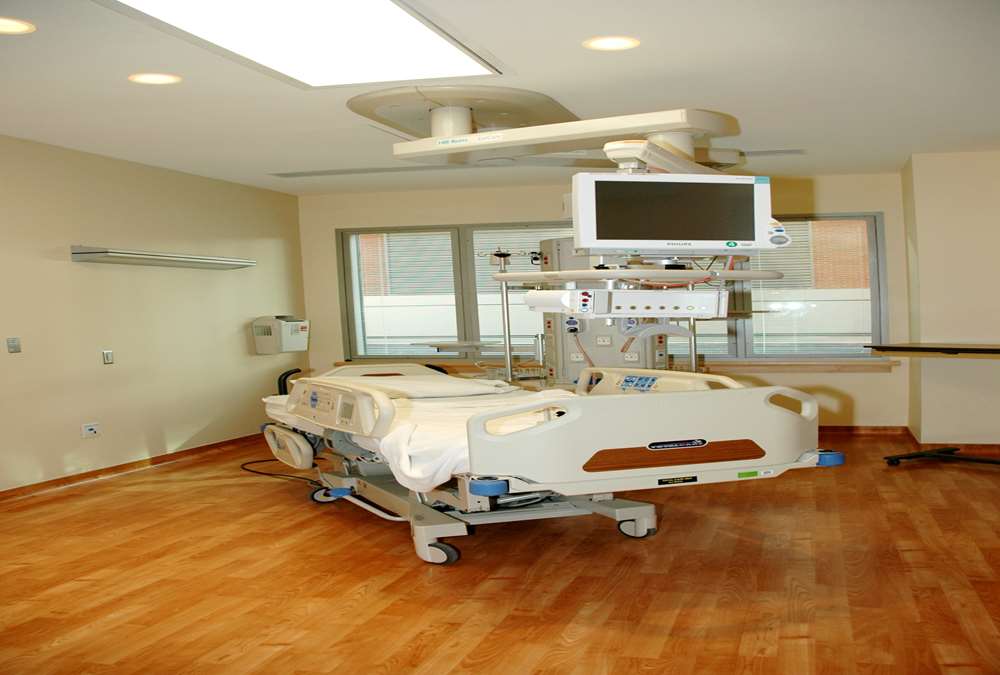- Home
- Business Processes
- Industry Knowledge
- Aerospace Industry
- Automotive Industry
- Banking Domain
- BFSI Industry
- Consumer/ FMCG Industry
- Chemicals Industry
- Engineering & Construction
- Energy Industry
- Education Domain
- Finance Domain
- Hospitality Domain
- Healthcare Industry
- Insurance Domain
- Retail Industry
- Travel and Tourism Domain
- Telecom Industry
- Leadership Skills
- eLearning
- Home
- Industry Knowledge
- Healthcare Industry
- Specialty Hospitals
Specialty Hospitals
This article provides insightful industry analysis and research into the specialty hospital industry. This article discusses the definition, key industry products, and activities along with major industry trends. Understand the revenue model, a brief history of trends during the current century, and key challenges currently being faced by the specialty hospital industry.
What are Specialty Hospitals?
A typical community hospital provides a broad range of services to accommodate the needs of the public it serves. Specialty hospitals offer focused services to treat medical conditions that require a particular subset of skills and technology. Specialty hospitals provide care for a specific specialty and tailor their care and facilities to fit the chosen type of condition, patient, or procedure on which they focus. Types of specialized hospitals include trauma centers, rehabilitation hospitals, children's hospitals, seniors' (geriatric) hospitals, and hospitals for dealing with specific medical needs such as psychiatric problems (see psychiatric hospital), certain disease categories such as cardiac, oncology, or orthopedic problems, and so forth.
Quote by Clayton M. Christensen:
“Hospital industry is the only industry worldwide where the factory (a hospital) is not specialized and tries to provide and be everything to everyone.” - The Innovator's Prescription
What is the Specialty Hospitals Industry?
The industry includes companies that provide diagnostic and medical treatment to inpatients with a specific type of disease or medical condition. Specialty hospitals have existed in various forms for many years as children’s hospitals, psychiatric hospitals, rehabilitation hospitals, eye and ear hospitals, arthritis hospitals, and they are also focusing on cardiovascular surgery, orthopedic surgery, general surgery, and women’s health. Specialty hospitals include hospitals that primarily provide long-term care for the chronically ill and those that offer rehabilitation, restorative and adjunctive services to physically challenged or disabled people. The industry does not include specialty units within general hospitals or psychiatric or substance abuse hospitals.
Specialty Hospitals Industry Products:
- Long-term acute care hospitals
- Inpatient rehabilitation facilities
- Children's specialty hospitals
- Cardiac facilities
- Orthopedic facilities
- Women's facilities
- Rehabilitation facilities
- Eye and ear facilities
- Arthritis treatment facilities
- Cancer hospitals
- Geriatric hospitals
- Chronic disease hospitals
- Nose and throat hospitals
Specialty Hospitals Industry Activities:
- Inpatient care
- Outpatient care
- Diagnostic x-rays
- Clinical laboratory services
- Operating room services
- Physical therapy
- Educational and vocational services
- Psychological and social work services
- Food services
Specialty Hospitals V/s General Hospitals:
Specialty hospitals are specialized centers which concentrate their effort on a single field providing their physicians with the necessary resources to remain at the cutting edge for the treatment in the area of their specialization. Due to greater volumes, they can deliver better care at a lower price. Physicians who work at specialty hospitals are masters of their area and have greater input; autonomy and independence in the operation of the facility hence have an added advantage of direct participation in the governance of their facility and can quickly make decisions that allow them to more easily influence quality and efficiency. Specialty hospitals by allowing physicians to share in the efficiency gains through ownership create incentives to achieve cost and quality improvements. Competition from specialty hospitals prompts positive changes in community hospitals’ in-patient services, such as extending patient hours, improving scheduling, and upgrading equipment. As specialty hospitals focus on a small number of medical procedures, they are able to execute that responsibility well in comparison to general hospitals.
Specialty Hospitals Industry Analysis & Industry Trends:
Specialty hospitals are gaining traction for future expansion and development and continued healthcare reforms will further benefit this trend. There is a focus on improving medical outcomes and as specialty hospitals adopt to pay for performance systems, they are likely to continue growing. Specialty hospitals will be well-positioned to benefit from value-based purchasing and other pay for performance programs. Specialty hospitals are ranking well in key metrics like length of stay, discharge rates, and quality care measures.
Key Drivers for Specialty Hospitals Industry:
- High entry barriers to open specialty hospitals
- Establish referral relationships with doctors, insurers, and others
- Awareness and reach among the local community
- The aging population influencing increased demand
- Impact of new technologies on specialized treatments
- Medicare reimbursement rates
- Shortage of skilled healthcare personnel
- Consumer demand
- Procedural Operating Margins
- Clinical efficiencies
- Procedural economies of scale
- Economies (and diseconomies) of scope
- Competencies and learning
Related Links
You May Also Like
-
Overview of Healthcare Industry
The health care industry, or medical industry, is a sector that provides goods and services to treat patients with curative, preventive, rehabilitative, or palliative care. The modern health care sector is divided into many sub-sectors and depends on interdisciplinary teams of trained professionals and paraprofessionals to meet the health needs of individuals and populations. This article provides an overview of the medical industry.
-
This article provides insightful industry analysis and research into the Blood & Organ Banks industry. This article discusses the definition, key industry products, and activities along with major industry trends. Understand the revenue model, a brief history of trends during the current century, and key challenges currently being faced by the Blood & Organ Banks industry.
-
Nursing and Residential Care Facilities
This article provides insightful industry analysis and research into the Nursing and Residential Care Facilities industry. This article discusses the definition, key industry products, and activities along with major industry trends. Understand the revenue model, a brief history of trends during the current century, and key challenges currently being faced by the Nursing and Residential Care Facilities industry.
-
This article provides insightful industry analysis and research into the Dental Laboratories industry. This article discusses the definition, key industry products, and activities along with major industry trends. Understand the revenue model, a brief history of trends during the current century, and key challenges currently being faced by the Dental Laboratories industry.
-
Hospices & Palliative Care Centers
This article provides insightful industry analysis and research into the Hospices & Palliative Care Centers industry. This article discusses the definition, key industry products, and activities along with major industry trends. Understand the revenue model, a brief history of trends during the current century, and key challenges currently being faced by the Hospices & Palliative Care Centers industry.
-
This article provides insightful industry analysis and research into the Sleep Disorder Clinics industry. This article discusses the definition, key industry products, and activities along with major industry trends. Understand the revenue model, a brief history of trends during the current century, and key challenges currently being faced by the Sleep Disorder Clinics industry.
-
Teaching or University Hospitals
This article provides insightful industry analysis and research into the teaching/university hospital industry. This article discusses the definition, key industry products, and activities along with major industry trends. Understand the revenue model, a brief history of trends during the current century, and key challenges currently being faced by the teaching hospital industry.
-
Mental health and residential developmental handicap facilities
This article provides insightful industry analysis and research into the Mental health and residential developmental handicap facilities industry. This article discusses the definition, key industry products, and activities along with major industry trends. Understand the revenue model, a brief history of trends during the current century, and key challenges currently being faced by the Mental health and residential developmental handicap facilities industry.
-
This article provides insightful industry analysis and research into the specialty hospital industry. This article discusses the definition, key industry products, and activities along with major industry trends. Understand the revenue model, a brief history of trends during the current century, and key challenges currently being faced by the specialty hospital industry.
-
Healthcare Systems – Public , Private and Mixed
This article explains the concept of health systems and their importance and funding practices. It helps the reader to understand public, private, and mixed health systems and their significance and roles in catering to any nation’s healthcare requirements.
Explore Our Free Training Articles or
Sign Up to Start With Our eLearning Courses

About Us
Learning
© 2023 TechnoFunc, All Rights Reserved










